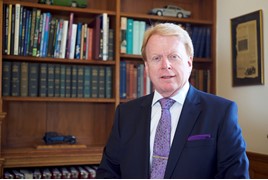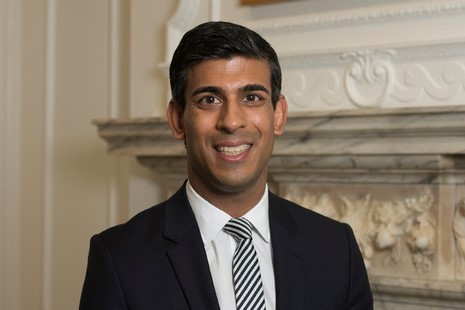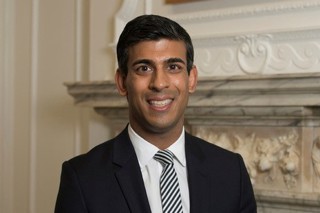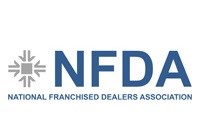Chancellor of the Exchequer Rishi Sunak has pledged to continue to support businesses and jobs in a “fair and honest” 2021 Budget, but corporation tax rises are on the horizon.
Addressing the Houses of Parliament this lunchtime, Sunak said that the Coronavirus Job Retention Scheme (CJRS) would continue to run until September, alongside schemes for the self-employed, while the recovery of retail businesses would be bolstered by Restart Grants of up to £6,000 per premises.
Businesses benefitting from the furlough scheme will be asked for a 10% contribution from July, however, rising to 20% in August and September.
Government's full business rates holiday will be also extended until June, with rates discounted by two thirds for the following nine months.
Meanwhile, a revised CBILS scheme called the “Recovery Loan Scheme” will allow businesses to borrow between £25,000 and £10 million with an 80% government guarantee.
Tax reforms
But as Office for Budgetary Responsibility (OBR) forecasts showed that the UK government has borrowed £355bn this year and is expected to be £234bn in 2022, Sunak told Parliament that efforts must be made to ensure debt is not left to future generations to deal with.
Central to the tax reforms designed to reduce the public debt is a rise in corporation tax to 25% from 2023.
A Small Profits Rate will ensure buisneses with a prfoit of 19% pay a rate of 19%, however.
Only businesses with profits of over £250,000 will be taxed at the new 25% rate, meaning that 1.4 million businesses remain completely unaffected by the change, Sunak said, stating: “Only 10% of all companies will pay the full higher rate”.
The chancellor conceded that his corporation tax decisions might not be "popular", but added that they were "honest" and "responsible".
He also announced a "super deduction" tax scheme for companies that invest in innovation. It sees businesses able to reclaim up to 130% of certain investments which drive growth.
In an attempt to preserve the finances of normal working people, Sunak announced that the national living wage would rise to £8.91, as planned, in April.
Duty was also frozen on fuel and all alcoholic drinks, while the up-to-£500,000 "nil-rate band" for stamp duty will finish at the end of June, rather than the end of March, as planned.
Boosting investment
Government also launched a scheme which would deliver loan guarantees to first time house buyers who could only afford a 5% deposit.
However, on income tax, the threshold for paying the basic rate will be frozen until 2026 - along with national insurance and personal tax thresholds - following a rise to £12,570 next year. For higher-rate payers, the threshold will be £50,270.
Among other Budget commitments were city and growth deals in Ayrshire, Argyll and Bute, Falkirk, North Wales, Mid Wales, and Swansea Bay which , through the Barnett formula, would increase the funding for the devolved administrations, by £1.2bn for the Scottish government; £740m for the Welsh government; And £410m for the Northern Ireland executive.
An Infrastructure Bank with an initial capitalisation of £12bn will be established in Leeds with a specific aim of boosting investment in green industries, meanwhile.
And eight new freeports will be established around the UK, with freer planning controls and tax breaks available for businesses who choose to boost employment at: East Midlands Airport; Felixstowe and Harwich; Humber; Liverpool City Region; Plymouth; Solent; Thames; and Teesside.
Sunak said that OBR forecasts based on the actions already implemented to help the UK overcome the COVID-19 coronavirus crisis, along with the those announced today would help the UK economic recovery to be "swifter and more sustained recovery than expected".
After conceding that the economy is expected to be 3% smaller in five years than it would have been, he said that the OBR “expects the economy to return to pre-COVID levels by the middle of next year”.
He added: "The OBR forecast that our economy will grow this year by 4%, by 7.3% in 2022, then 1.7%, 1.6% and 1.7% in the last three years of the forecast."
Automotive sector response
 Sue Robinson, chief executive, of the National Franchised Dealers Association (NFDA) praised Government for continuing the furlough scheme, in addition to the business rates holiday, which she described as "one of the most welcome forms of financial support offered during the pandemic".
Sue Robinson, chief executive, of the National Franchised Dealers Association (NFDA) praised Government for continuing the furlough scheme, in addition to the business rates holiday, which she described as "one of the most welcome forms of financial support offered during the pandemic".
Robinson said that the planned rise in corporation tax "was not unexpected", but said that its delayed implimentation would give businesses some time to start to recover from the current disruption.
She added: "The ‘super deduction’ tax relief will partly offset this increase especially as retailers need to make further investments into their sites to meet changing demand.”
James Tew, the chief executive of iVendi said that he saw Sunak's Budget speech as being "what (car dealers) fundamentally wanted".
 Tew said: “From our conversations with dealers, we know that what they fundamentally wanted from this Budget was a stable economic background that allowed them to plan for the rest of the year with a high degree of certainty.
Tew said: “From our conversations with dealers, we know that what they fundamentally wanted from this Budget was a stable economic background that allowed them to plan for the rest of the year with a high degree of certainty.
"My view is that, by and large, this has been delivered. Businesses and individuals are being given a high degree of support through most of the rest of the year and this should help to project jobs and reduce any potential business difficulties.
"All of this should help to maintain and build consumer confidence, which should feed through into sustained - and even possibly buoyant - used car, van and motorcycle sales.
"There is a massive bill forthcoming to repay all of this spending, of course, but Rishi Sunak has chosen to kick that can down the road by delaying the increase in Corporation Tax to 25% and we believe that is the right move.”
 Institute of the Motor Industry chief executive, Steve Nash, said that confirmation that the furlough scheme is being extended to the end of September will have brought relief "for some parts of the automotive sector".
Institute of the Motor Industry chief executive, Steve Nash, said that confirmation that the furlough scheme is being extended to the end of September will have brought relief "for some parts of the automotive sector".
He also acknowledged a boost in funds for training in a Budget which also announced a doubling of the current apprentice bonus to £3,000, for businesses taking on a new apprentice of any age.
But he added: "Most disappointing is the lack of any real tangible support to improve apprenticeship take-up. With the Government still refusing to waive the Apprenticeship Levy clawback, if funds are not used within two years, the picture for the apprenticeship route in automotive still looks bleak.
"Whilst apprenticeship starts in England as a whole dropped by 9% in November 2020, for the automotive sector the fall was much more significant. Apprenticeship starts in automotive in November 2020 were 33% lower than the previous year."


















Login to comment
Comments
No comments have been made yet.